Listen again to S1, E19-21 of the podcast Success Beyond The Score
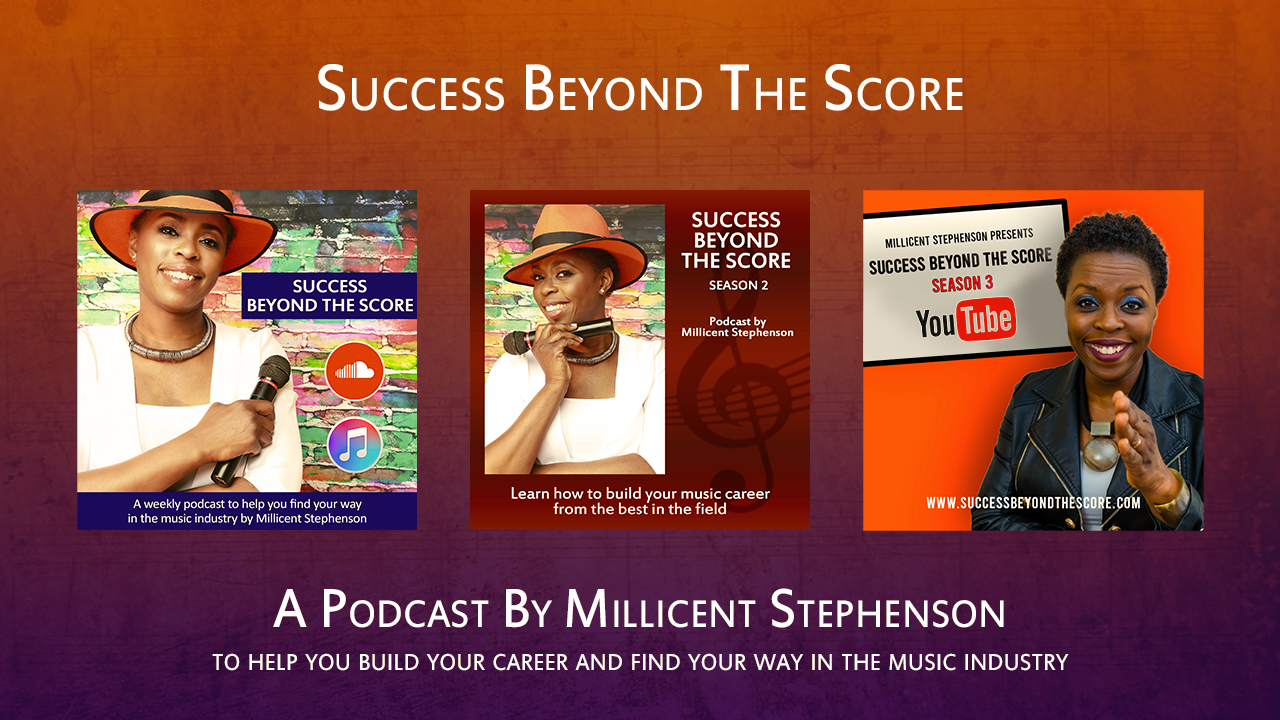
These episodes of the podcast Success Beyond the Score complete the segment about music press kits. If you want to learn more about how to make money from your music and how to promote yourself, be sure to join our mailing list to be notified of our offers on this and other topics.
Have a listen:
19. What should be your killer music track for your press kit?Sometimes, potential clients ask you for your music instead of your press kit. So, what should be your killer track, the one that gets them thinking you are the one to book? In general terms, what is the client looking for in your music?
20. How to make serious money from your musicWould you like to know how to increase your earning potential through your music? Would you like to earn the money you desire from your music? Millicent shares her experience of making a living from her music in this episode.
21. What are the top three essential things to have in your music press kit?Millicent wraps up her series on the Mus
...
Listen again to S1, E14-18 of the podcast Success Beyond The Score
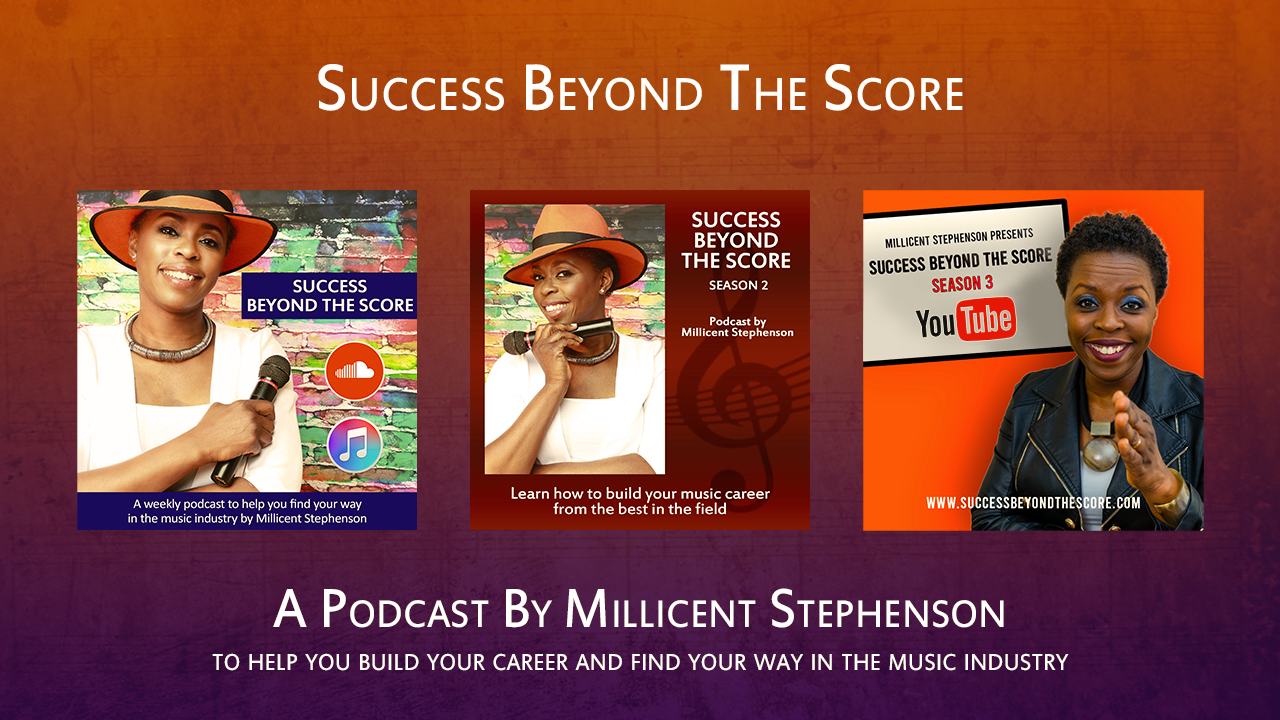
The following group of episodes of the podcast Success Beyond the Score are all about how to market yourself. While the event discussed in episode 14 has long since past, the process described is a good example of what to expect when trying to get that sort of gigs. From episode 15 onwards, Millicent will talk you through the design of your Music Press Kit.
Have a listen:
14. How to perform in the Commonwealth Games 2022
Would you like to perform in the Commonwealth Games in 2022, which are being held in the city of Birmingham and the West Midlands region, United Kingdom? In today's episode, Millicent explains how to get yourself in.
15. What should you have in your Music Press Kit?
What is a Music Press Kit? Is it different from an Electronic Press Kit? What should be in it? Whether you are in the early stages of your music or performing regularly, a Press Kit is a must.
16. How to write an artist bioWhat should you put in your music bio? How should it be written? What sho
...
Never skip the sound check!

One of the things that I learned in the early stages of my music career is the importance of having a sound check.
In the early stages, I would turn in at the start time of the event with my instrument, put it together while I was in my seat, go on stage when my name was called, and play. This made it so I didn't normally get the sound experience I hoped. Fast forward to today, when I arrive 90 to 60 minutes before the starting time of the performance, depending on whether I’m bringing my own PA. I make sure that my sax mic is working, that my setup is correct and that my tracks work. Then, I walk around the stage in order to identify any zones where the signal of the radio mic may drop or stutter, or where feedback could be generated.
This is how I can guarantee a good sound and therefore a good experience for my audience. To illustrate, here is a little clip of me doing a sound check before playing Kingston Town at an event this summer:
Listen again to S1, E7-9 of the podcast Success Beyond The Score
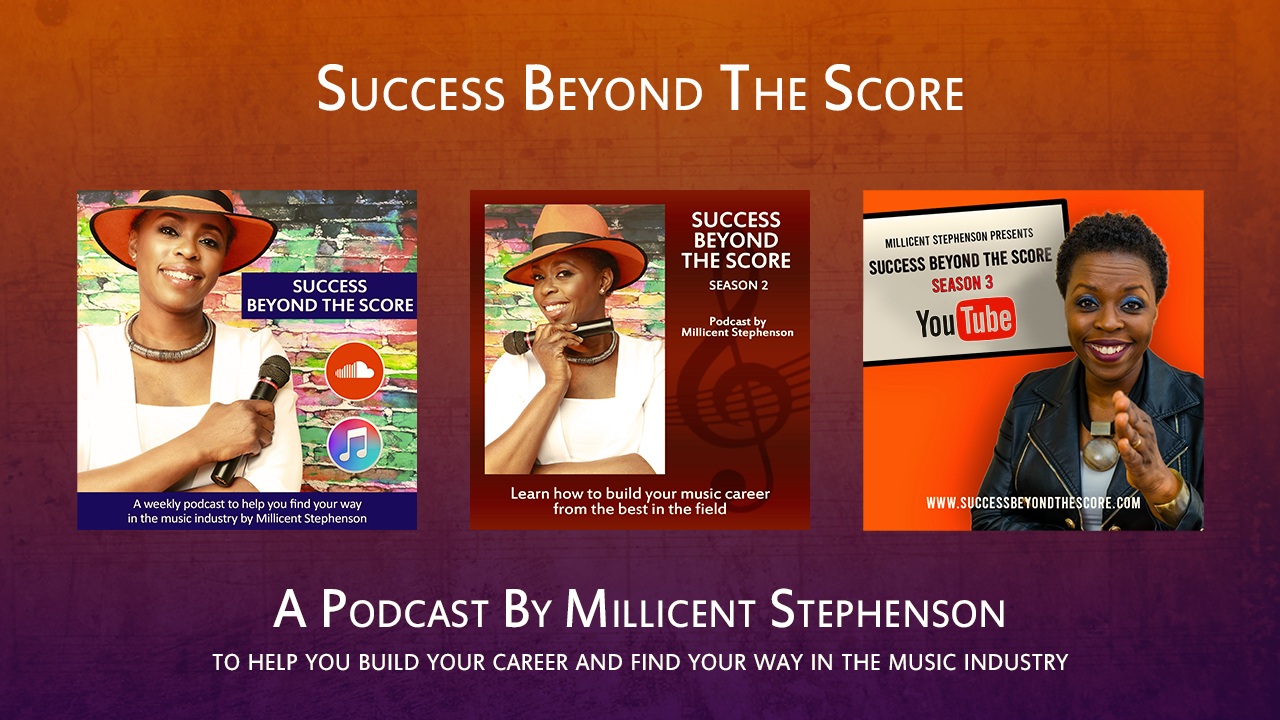
This time, we want to highlight a series within the first season covering a topic that's always relevant: music bands. How to decide between being in a band and working solo, how to manage conflict and stay creative and productive, it's all in these three episodes of Success Beyond the Score:
7. Is it time to leave the band and go solo?
Are you at a crossroad, wondering whether to leave your band and go solo? Maybe solo work isn't for you. Today a new series begins exploring the pros and cons of being in a band or working solo.
8. 10 rules for band wars.
Tearing your hair out because your band just don't get it? Too many conflicts but no clear path towards solutions? Check out these 10 tips to help you see the woods for the trees in your band.
9. Band Wars – Why the fuss gets really personal quickly
There are days when getting through the rehearsal or even the gig is hard going because of the wars between members. But why does the fuss gets really personal quickly? Wh...
Listen again to S1, E4-6 of the podcast Success Beyond The Score
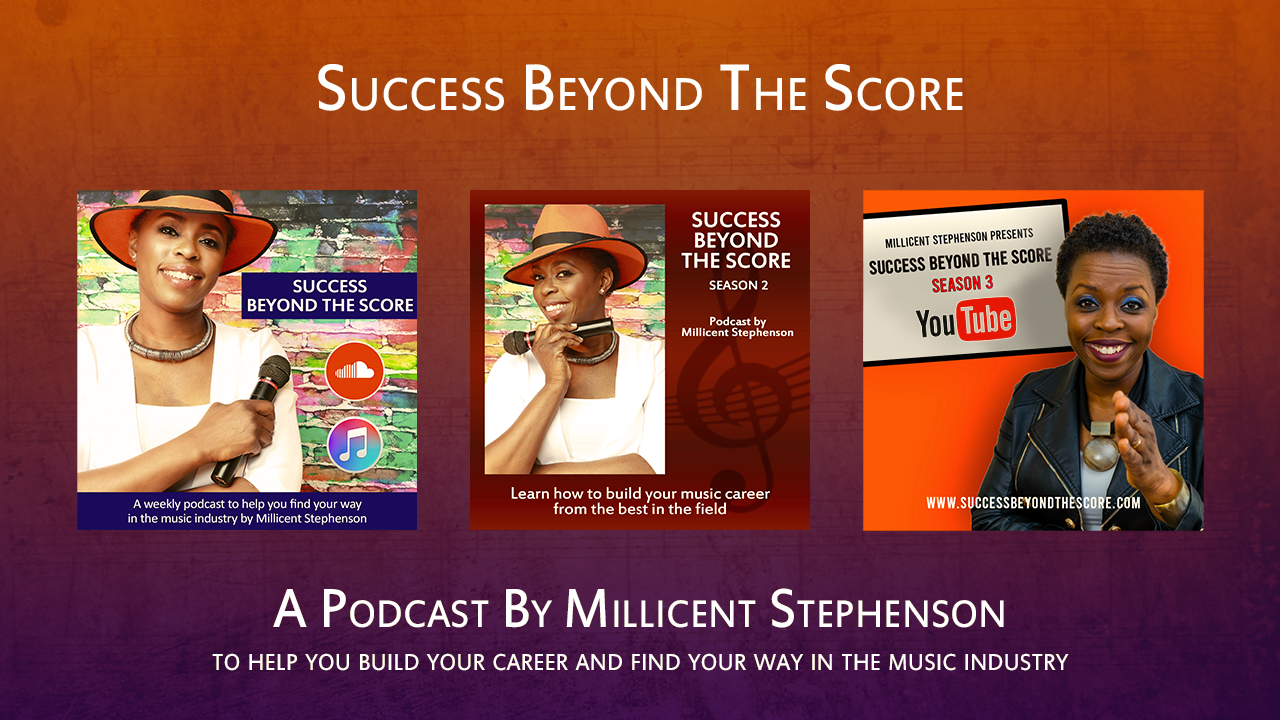
While the first season of the podcast Success Beyond the Score is already a few years old, it contains valuable information and perspectives that are still helpful. Today, we want to highlight episodes four to six of season 1, which are connected as a series to talk all about business cards:
4. Should I get business cards?
Should I get business cards? When I should get them? This is the first of a three part series about business cards for musicians, singers, rappers and spoken word artistes finding their way in the music industry.
5. What should I put on my business cards?
7 Tips for what should be on your business card - Printing on both sides of the card; Type of Picture; Write-on side; Card weight; Font Size; Card size; and Text content. This episode also includes bonus tips!
6. 10 points of etiquette for managing your business cards.
What is the best way to give away your business cards? Should you give them to everybody? These questions and more are answered in today's ...
A short survey to help us offer you the resources you need

Success Beyond the Score is a project born from Millicent's willingness to support men and women in their music journey. Through her podcast, mentoring, courses and resources, she has already helped people at different stages of their careers to achieve their goals.
Last month, she talked about the what, why, how, when and where of creating and achieving your vision in music. The only question left to answer is "with whom". We aren't born knowing! Having mentors or teachers is an essential part of taking our craft to where we want it to be. That's why Millicent is putting together a new way to guide and support singers and musicians in their journey. In order to assist with that, we are currently conducting a survey to assess the topics of greatest interest among our audience, and how you'd like to learn about them.
Click here to start the survey.
It will take you at most five minutes, and you will get a gift to thank you for your time at the end. Your contribution will help us unde...
Create and Achieve your Vision, part 4: The When and Where

First, we defined the what, then, the why. After that, we looked at the how, and that defined almost everything for us. Now, we just need to make the time and space to execute our plan, and we will achieve our vision.
This sounds easy, and it would be in a world less congested, noisy and stressful than the one we live in. We have responsibilities with our family, friend and community. We have jobs and maintain a home. The technology that's supposed to assist us more often than not becomes an addictive distraction, bombarding us with notifications that demand our attention 24/7. It's challenging to catch a breath and have time for ourselves.
Despite all this, it's possible to make time and space for our vision by working smarter, not harder. Don't sacrifice sleep or overexert yourself, that will only lead to health issues and burnout. Instead, keep your priorities at the forefront of your mind, and use them to take decisions. You are the owner of your attention, your energy and your ...
Create and Achieve your Vision, part 3: The How

In the first article of this series, we thought about what we want to achieve. Then, in the second entry, we reflected a little deeper to understand why we want what we want. So far, the most practical part of this exercise has been to write ideas down, you haven't had to stand up from the couch just yet.
Now, however, we have arrived to the point where the vast majority of people get stuck: the how. How can we get to where we want to get? What do we need? Where and how to start? The questions and the uncertainty can easily overwhelm you.
The first thing that we need to do is to step back, breathe, and focus on the elements of our vision. What is there that you need to acquire? What do you need to do in order to acquire those things? You'll be surprised by how frequently a daunting task becomes simple and easy just by paying no mind to anxiety, considering instead the logical steps needed to execute it.
Let's say that your goal is to play at open mics in the next year. What do you n...
Listen again to S1, E1-3 of the podcast Success Beyond The Score
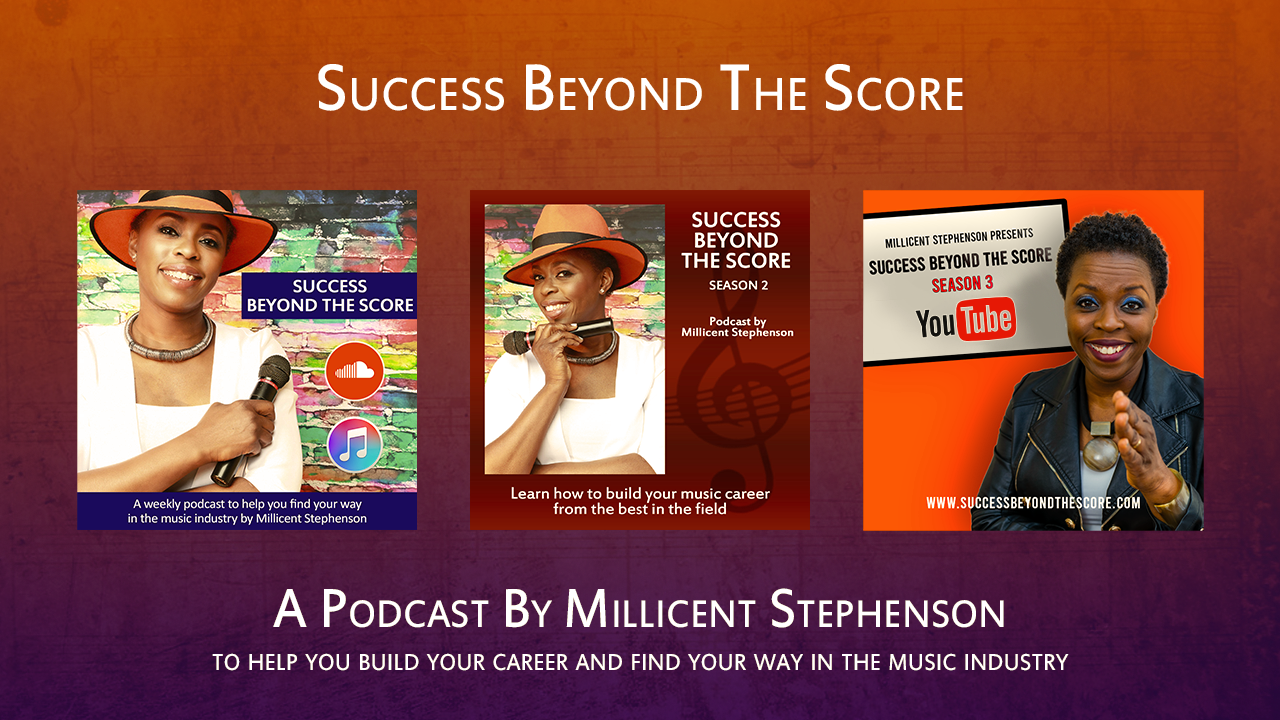
The podcast Success Beyond The Score was one of the foundational initiatives of the website full of resources that you know today. While the first season is already a few years old, it contains valuable information and perspectives that are still helpful. If you got a moment, why not revisit some of the episodes? Perhaps something in there will be relevant to where you currently are in your music journey.
For your consideration, here are the three first episodes of season 1:
1. IntroductionThe what, why and by whom of the podcast Success Beyond The Score.
2. Is age a number?Is your age important to what you do? Does it elevate or decimate your music?
3. Who's going to make your music happen?Who do you need to contact to make your music career happen, get you gigs and help you move forward?
If you have any comments, questions or observations about the content of these chapters, we would love to know!
Create and Achieve your Vision, part 2: The Why

Last time, I talked about my thought process when I decided to move on from being a hobbyist and become an established musician. I explained how I started cementing my vision by writing down what I wanted to achieve, condensing my beautiful dreams into describable goals. I also invited you to do the same, so you had your own material to follow along this series.
Now that you have the what, the next question is why. What is the reason behind your wish to reach something? What is the purpose that your goals serve to yourself? If you don't understand why you are doing what you do, or you lose sight of it with time, your motivation will dwindle. You need energy to overcome the challenges and obstacles that you will inevitably find on your way, and this energy, this drive that you need, can be fuelled by your reasons.
Just as we wrote down our whats to solidify them, we need to document our whys. Going back to them now and then to remind ourselves of our purpose keeps us focused and pushi...